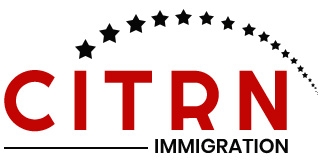
Who Can Make a Refugee Claim in Canada?
Who Can Make a Refugee Claim in Canada?
Canada has always been acclaimed for its protection and sanctuary for people from any other country who have fled persecution, violence, or danger in their native land. Making a refugee claim is an initial step toward safety and protection that is also considered the way to a new life in Canada. Not everyone may fit the mold for refugee status, and there are a few specifics that one needs to understand: who may make a claim and what the process involves.
This blog will cover eligibility criteria, restrictions, and step-by-step procedures involved in making a refugee claim in Canada to clearly guide those in need of protection.
What is a Refugee Claim?
A refugee claim is an official request for protection by a person already in Canada or at its border. When someone submits a refugee claim, they are requesting that the government of Canada grant them recognition as a **refugee** under the laws of Canada and under the **United Nations Refugee Convention.
Refugees are those who, for various reasons, cannot go back to their home country due to a real risk of serious harm. Events such as persecution based on race, religion, nationality, political opinion, or affiliation with a certain social group can be reasons. Examples of a social group include gender identity and sexual orientation.
Who Can Make a Refugee Claim in Canada?
For one to make a refugee claim, there has to be some form of eligibility. Here are some of the key factors of eligibility:
Fear of Persecution
This is a must, where the individual has to prove that they fear persecution in their native country. The persecution needs to be based on one or more of the following grounds:
- Race
- Religion
- Nationality
- Political Opinion
- Membership in a Particular Social Group (such as gender identity, sexual orientation, or other distinctive groups)
Risk of Torture or Inhuman Treatment
Apart from persecution, one can claim refugee status if the person has a risk of torture, death, or cruel and unusual treatment or punishment in a home country. It applies if the person would face such harms upon return to the country of origin.
Physically Present in Canada
To make a refugee claim, the person must be in Canada or at a Canadian port of entry-as a rule, an airport, land border, or seaport-to make an application. No refugee claims can be made by a person outside of Canada.
Who Cannot Make a Refugee Claim in Canada?
While many persons are eligible to make a refugee claim, there are several circumstances in which a person may not be eligible. Listed herein are those circumstances where a person cannot apply for refugee status in Canada:
Already Recognized as a Refugee in Another Country
This means that if a person has already been recognized as a refugee in another country and is able to return there without danger, they are not eligible to make a refugee claim in Canada. This is an agreement that reflects Canada's commitment to ensuring impartiality and efficiency in refugee protection across international borders.
Safe Third Country Agreement
Under the Canada-U.S. Safe Third Country Agreement, individuals who arrive at a land border in Canada from the United States are not eligible to make a refugee claim in Canada. The agreement is contingent on the fact that the U.S. is considered a safe country where refugees have protection, and they should be making an application for refugee status in the U.S. There are some exceptions, however: Close family members in Canada Unaccompanied minors
Certain individuals with issues in travel documents
Previous Refugee Claim Denied
If a person has already submitted a refugee claim in Canada and was denied, abandoned, or withdrawn, then they can't file another claim. In the case of repeated claims by the same claimants without new evidence or changes in circumstances, it burdens the system.
Serious Criminal Convictions
Individuals who have been convicted of serious crimes, such as war crimes, terrorism, or serious non-political offenses, are inadmissible to make a refugee claim in Canada. Canada's refugee system is designed to protect the vulnerable, and serious criminals are not entitled to that protection.
The Refugee Claim Process in Canada
If a person is eligible to make a refugee claim, the process is as follows:
- Making the Claim
The individual may make a claim at a port of entry or an IRCC office if they are in the country already. They will have to attend an eligibility interview . - Eligibility Interview
It involves an immigration officer's assessment of the claim with a view to determining eligibility under the laws in place. In this regard, he will investigate the claimant's background, previous refugee claims, and the possibility of protection from another source. - Referral to the Immigration and Refugee Board (IRB)
If the claim is determined to be eligible, it is referred to the Refugee Protection Division of the Immigration and Refugee Board of Canada, which will hold a hearing of a refugee claim to decide whether the individual meets the protection criteria. - Hearing of the Refugee Claim
The refugee claimant will have a hearing before the RPD. During the hearing, testimony, documents, or country condition reports are given as evidence to corroborate the claim, in the interest of being able to prove that a person is persecuted or in danger if he goes back to his country of origin. - Decision
Following the hearing, a decision on the claim will be rendered by the RPD. If the claim is approved, the individual is accorded **protected person status** and permitted to stay in Canada and, in due course, apply for permanent residency. If the claim is denied, the claimant can appeal the decision or be removed.
Legal Support and Protections for Refugee Claimants
Refugee claimants in Canada have some rights and protection of the law during a processing period. Here are a few:
- Work Permits: A refugee claimant is allowed to apply for permission to work in order to support themselves while their claim is under review.
- Healthcare Access: Refugee claimants also have access to key medical services through the Interim Federal Health Program while awaiting a decision.
- Social Services : The claimants are entitled to language training, counselling, and housing assistance in resettlement, which will help them settle in Canadian society.


Looking for safety and a fresh start in Canada?
Explore refugee sponsorship programs and begin your journey to a new life.
Contact us today for support and guidance.

